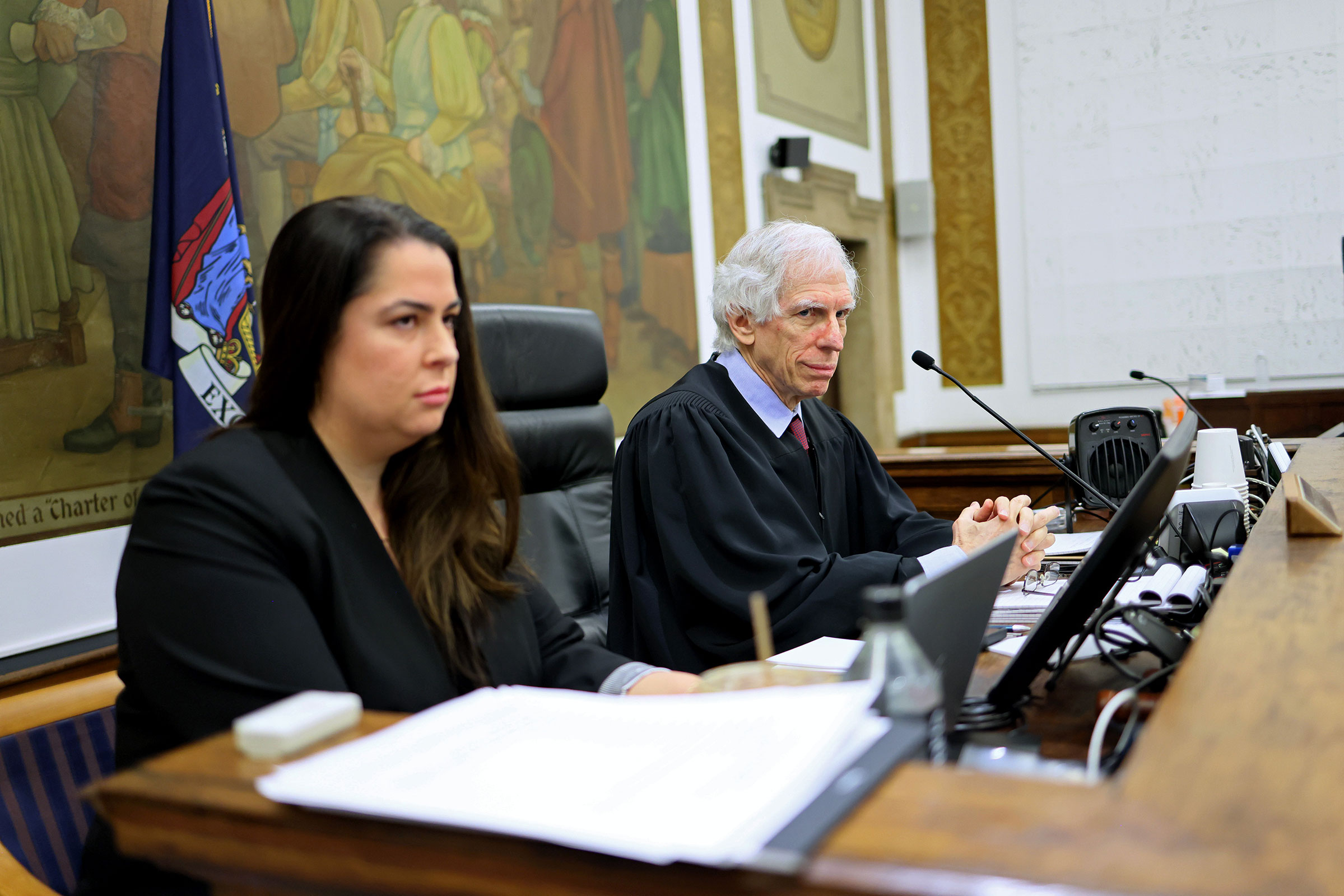Delaware Governor's Warning: Identifying And Confronting Fascism In A Post-Trump Era

Table of Contents
Defining Fascism in the Modern Context
Defining fascism requires careful consideration, as it's often conflated with other political ideologies. Fascism, at its core, is a far-right, authoritarian ultranationalist political ideology characterized by dictatorial power, forcible suppression of opposition, and strong regimentation of society and the economy. Modern fascism, or neo-fascism, takes on various forms, adapting its tactics to contemporary contexts. It shares key characteristics with historical fascism, but its manifestations can be subtle and require careful observation.
-
Characteristics of fascism:
- Ultranationalism: An intense, often aggressive, national pride and belief in the superiority of one's nation.
- Cult of Personality: The elevation of a single leader to a position of almost divine authority.
- Suppression of Opposition: The ruthless silencing of dissenting voices through intimidation, violence, or legal means.
- Militarism: The glorification of military power and the use of force to achieve political goals.
- Propaganda and Disinformation: The systematic dissemination of biased or misleading information to manipulate public opinion.
-
Examples of modern fascist or far-right movements: While varying in specifics, many groups globally exhibit characteristics aligning with neo-fascist tendencies, often utilizing social media for propaganda and recruitment. It's crucial to recognize these varied presentations to effectively counter them.
-
Distinguishing fascism from other ideologies: It's vital to differentiate fascism from conservatism or populism. While some populist rhetoric might overlap, fascism fundamentally rejects democratic principles and individual liberties in favor of a totalitarian state.
The Governor's Warning and its Implications
The Delaware Governor's statement highlighted specific instances of escalating extremism and the potential for violence. While the exact details may vary depending on the specific statement, the underlying concern revolves around the erosion of democratic norms, the spread of misinformation, and the increasing boldness of extremist groups. The governor likely pointed to specific events or trends illustrating the growing threat, possibly including online radicalization, instances of political violence, or attempts to undermine electoral processes.
-
Summary of the Governor's key statements: The statement likely emphasized the urgency of the situation, calling for increased vigilance and proactive measures to counter the threat.
-
Analysis of the potential threats identified: These threats likely include the potential for violence, the undermining of democratic institutions, and the erosion of social cohesion.
-
The governor's call to action and its significance: The call to action likely urged citizens to actively participate in protecting democratic values, combatting misinformation, and supporting democratic institutions. This highlights the crucial role of civic engagement in confronting this challenge.
Identifying and Countering Fascist Tactics
Identifying and countering fascist tactics requires vigilance and a commitment to critical thinking. Fascist movements frequently employ sophisticated propaganda techniques to manipulate public opinion and sow discord.
-
Recognizing propaganda techniques:
- Appeals to emotion: Using fear, anger, and patriotism to sway opinions.
- Scapegoating: Blaming a particular group for society's problems.
- Misinformation and Disinformation: Spreading false or misleading information to confuse and mislead.
-
Strategies for fact-checking and critical media consumption: Develop media literacy skills, verify information from multiple reputable sources, and be wary of sensationalist or emotionally charged content.
-
The role of education and civic engagement in combating extremism: Education plays a vital role in promoting critical thinking, tolerance, and understanding of diverse perspectives. Active participation in civic life helps strengthen democratic institutions and counter extremist narratives.
-
Supporting democratic institutions and processes: Protecting free and fair elections, freedom of speech, and the rule of law are crucial in preventing the rise of authoritarianism.
Protecting Democracy in the Post-Trump Era
Protecting democracy in the post-Trump era requires a multifaceted approach. It demands active participation from citizens, robust media scrutiny, and the strengthening of democratic institutions.
-
Importance of free and fair elections: Ensuring the integrity of the electoral process is paramount to maintaining a healthy democracy.
-
Protecting freedom of speech and assembly: Safeguarding these fundamental rights is essential for open dialogue and dissent.
-
Promoting inclusivity and tolerance: Building a society that values diversity and respects the rights of all its citizens is crucial in combating extremism.
-
The role of civil society in holding power accountable: Independent organizations play a critical role in monitoring government actions and advocating for democratic reforms.
Conclusion
The Delaware Governor's warning serves as a stark reminder of the ongoing threat of fascism in the post-Trump era. Understanding the characteristics of fascism, recognizing its tactics, and actively engaging in protecting democracy are not optional; they are necessities. Combating fascism requires a collective effort—from staying informed and engaging in critical thinking to actively participating in our communities and supporting democratic institutions. Learn more about combating fascism, take action against fascism, and protect our democracy from fascism by staying informed, engaging in critical thinking, and participating in your community. Research the Delaware Governor's statement and learn more about how you can contribute to safeguarding our democratic values.

Featured Posts
-
 Decoding The F1 Drivers Press Conference A Guide
May 26, 2025
Decoding The F1 Drivers Press Conference A Guide
May 26, 2025 -
 Trumps Campaign Against Elite Law Firms Faces Another Judicial Defeat
May 26, 2025
Trumps Campaign Against Elite Law Firms Faces Another Judicial Defeat
May 26, 2025 -
 Mathieu Van Der Poel A Paris Roubaix Hat Trick
May 26, 2025
Mathieu Van Der Poel A Paris Roubaix Hat Trick
May 26, 2025 -
 The Short Lived Black Lives Matter Plaza A Case Study In Urban Change
May 26, 2025
The Short Lived Black Lives Matter Plaza A Case Study In Urban Change
May 26, 2025 -
 Tour Of Flanders 2024 Pogacars Impressive Solo
May 26, 2025
Tour Of Flanders 2024 Pogacars Impressive Solo
May 26, 2025
